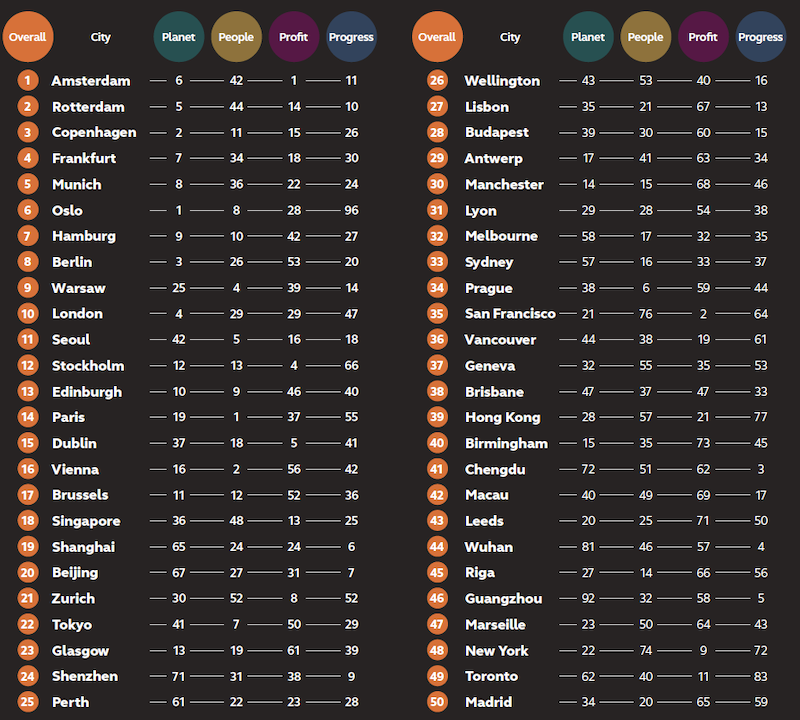Perth Tops the Aussies in Sustainable Cities Index

Perth has topped the Australian capitals in a global index of sustainable cities as the consultants behind it issues a stark warning to the world.
Global design and consultancy Arcadis has released its Sustainable Cities Index 2024, which reveals an urgent need for accelerated action in tackling climate change and other sustainability challenges.
The new report reveals some clear disparities between leading sustainable cities such as index-topping Amsterdam (1st), Copenhagen (3rd) and Munich (5th), and those trailing behind—particularly US powerhouses including New York (48th), Boston (56th) and Washington DC (65th).
The Arcadis Sustainable Cities Index ranks 100 global cities across three pillars of sustainability: Planet, People and Profit.
Marking the sixth edition of the report since its inception in 2015, the 2024 index comprises 67 different metrics to highlight evolving understanding of urban sustainability.
Key data points include air pollution, waste management and investment in low carbon infrastructure (including renewable energy and sustainable transport), as well as factors such as economic performance, social equity and resilience to natural disasters.
This year Arcadis has added a fourth pillar to the index, Progress, measuring change over time to demonstrate the impact of sustainability interventions made over the past decade.
When considered alongside the other pillars, it provides insights into a city’s future trajectory and emphasises the importance of continuous advancement to achieve the sustainable development goals.
Sustainable cities index 2024 top 50

Arcadis’s global study suggests that although European cities dominate the index’s upper rankings, Australian cities fare comparatively well by sustainability criteria: Perth came in at 25 in the global rankings, followed by Melbourne at 32, Sydney at 33 and Brisbane, which will host the Olympic Games in eight years, at 38.
Arcadis said Perth’s relatively high ranking was underpinned by strong rankings (compared to Australian peers) in Profit and Progress, though Perth underperformed on criteria related to People and Planet.
Melbourne’s progressive approach to the People pillar and ranking on Profit and Progress pillars offset its relatively poor performance on the Planet pillar.
Although Brisbane is the lowest-ranked Australian city overall, it ranks second-highest (among Australian cities) for Progress, suggesting the city is improving rapidly on key measures as the Olympics approaches.
Sydney’s overall ranking was underpinned by a strong performance against key criteria in the people pillar.
Arcadis cities director for Sydney Stephen Taylor said that Australians and their city leaders tended to look at the relative performance against their Australian competitor set.
“But while the four Australian cities in the survey ranked between 25 and 38, the scoring differences between them on key criteria are relatively small—Australian cities are roughly equivalent when looked at globally,” Taylor said.
“The value of this report is to reflect on Australian cities’ performance against their international competitors as we compete for global talent.
“The international comparison shows there is room for improvement on many criteria associated with the world’s most sustainable cities.”














